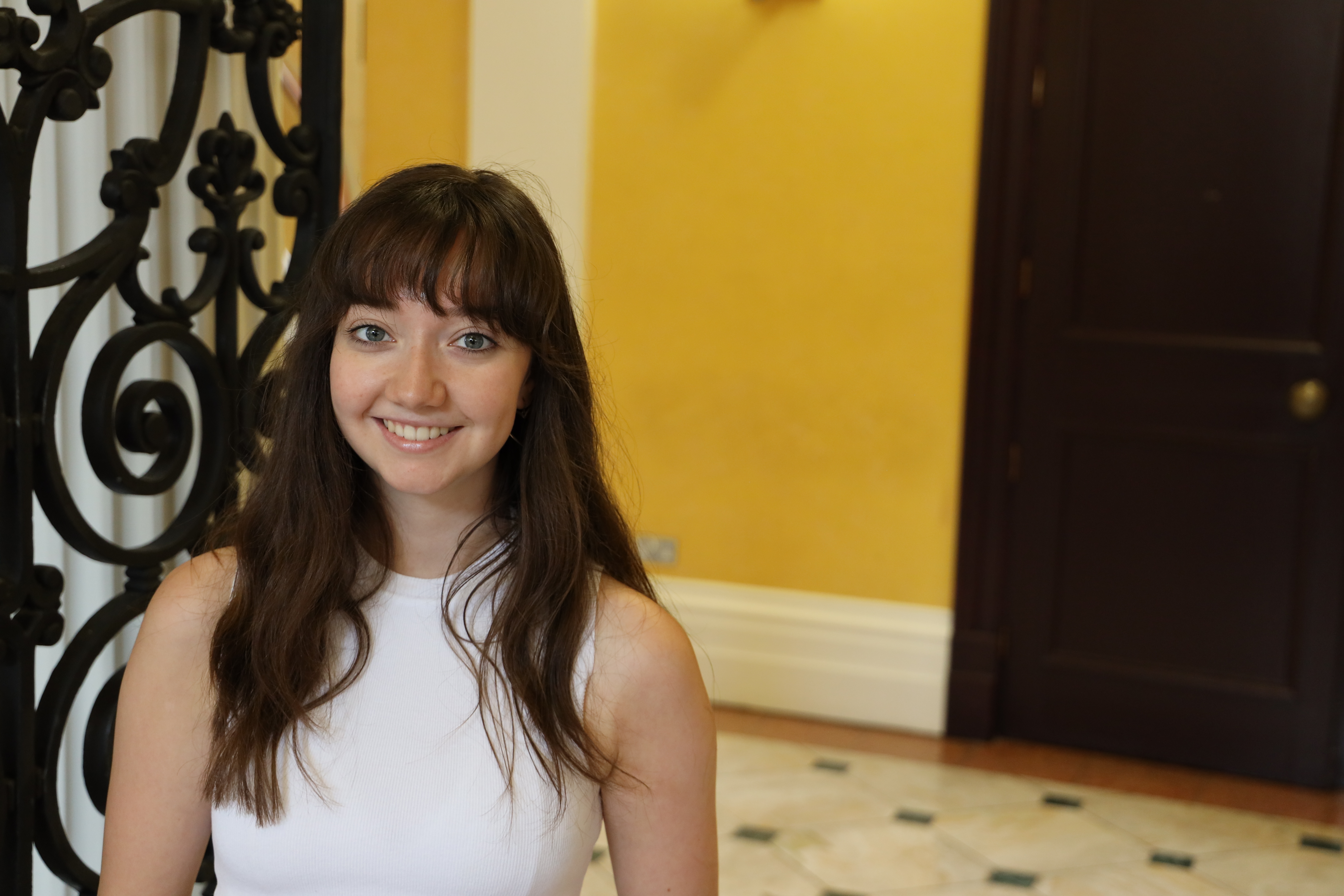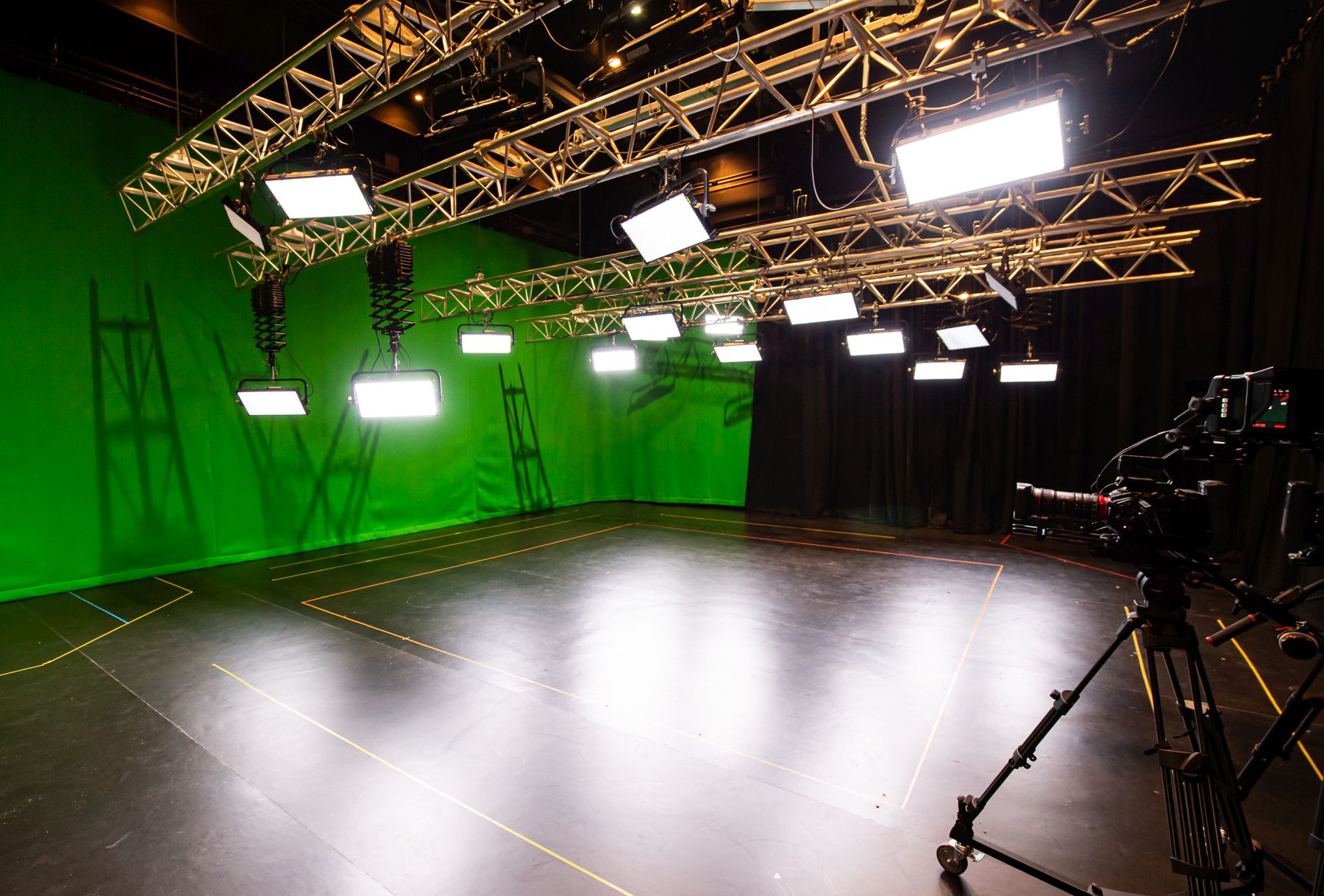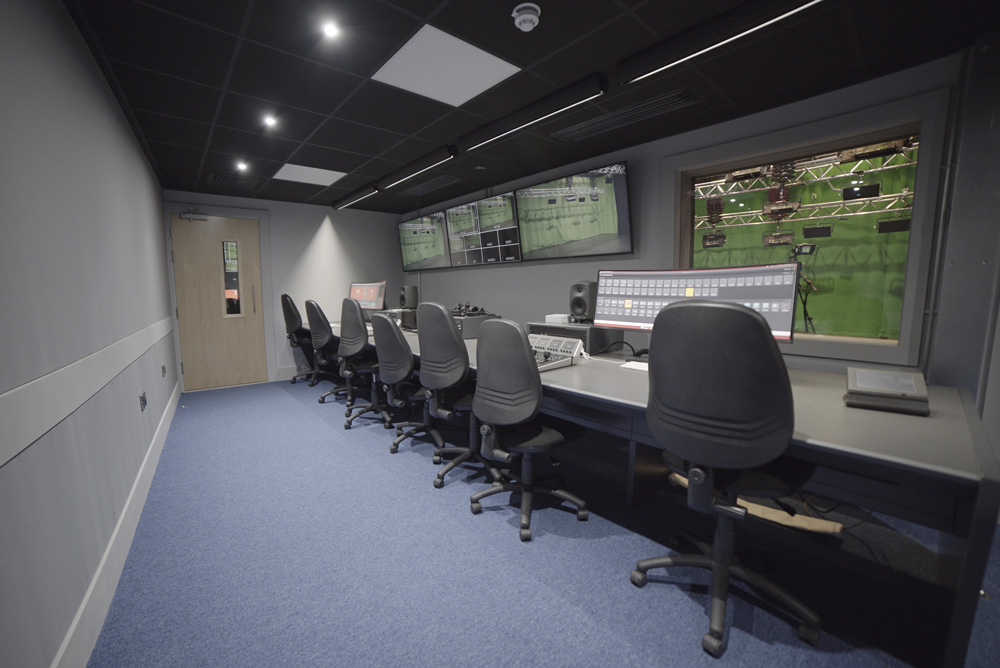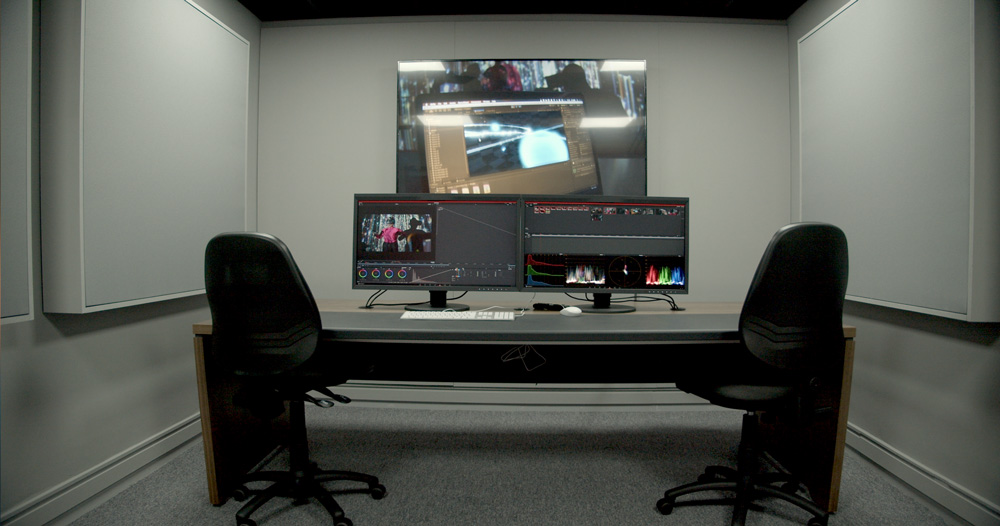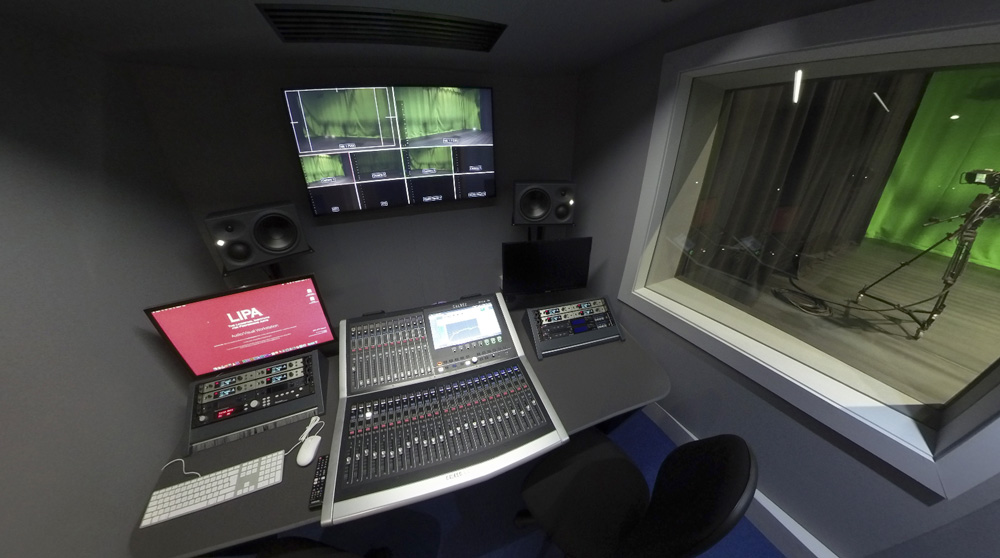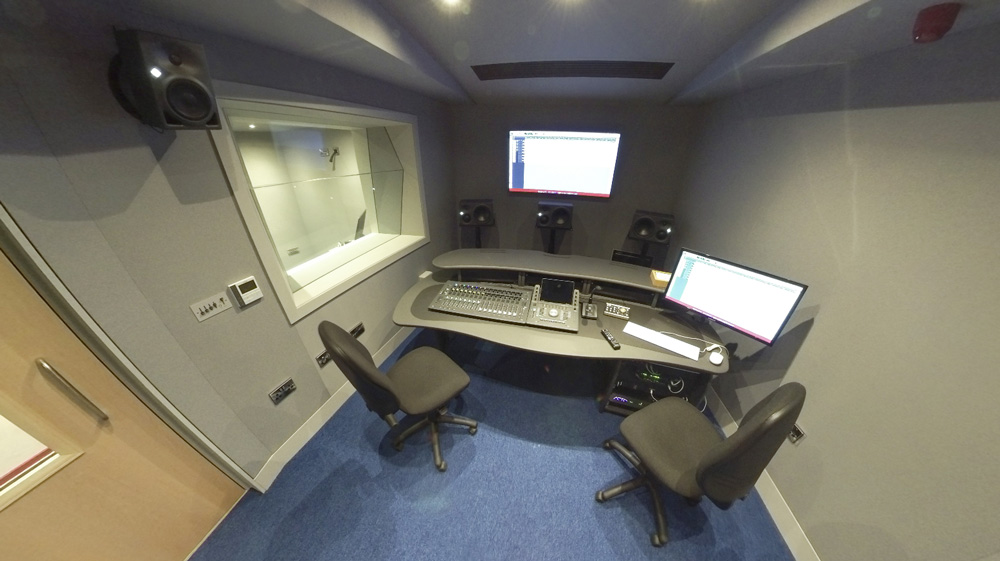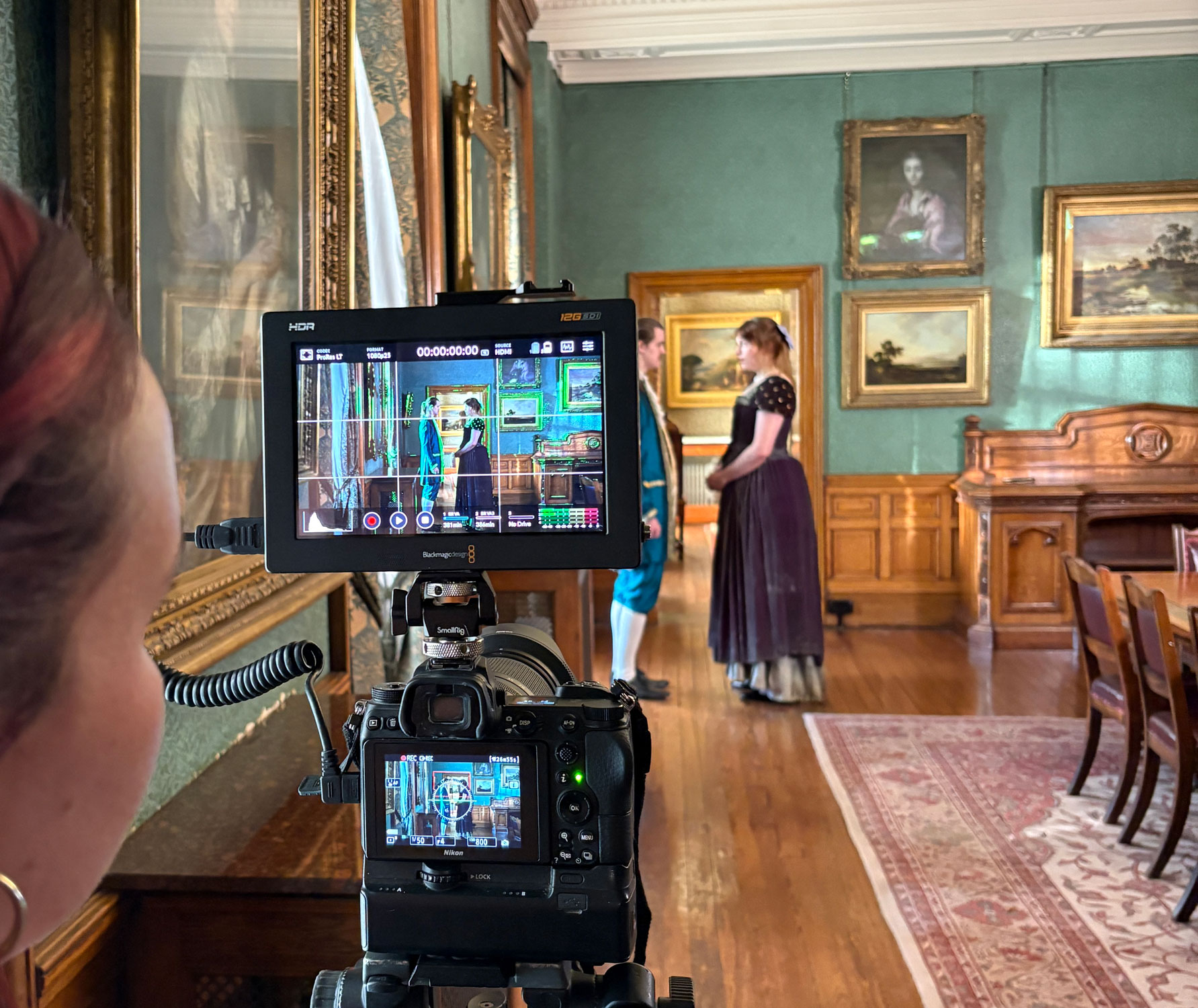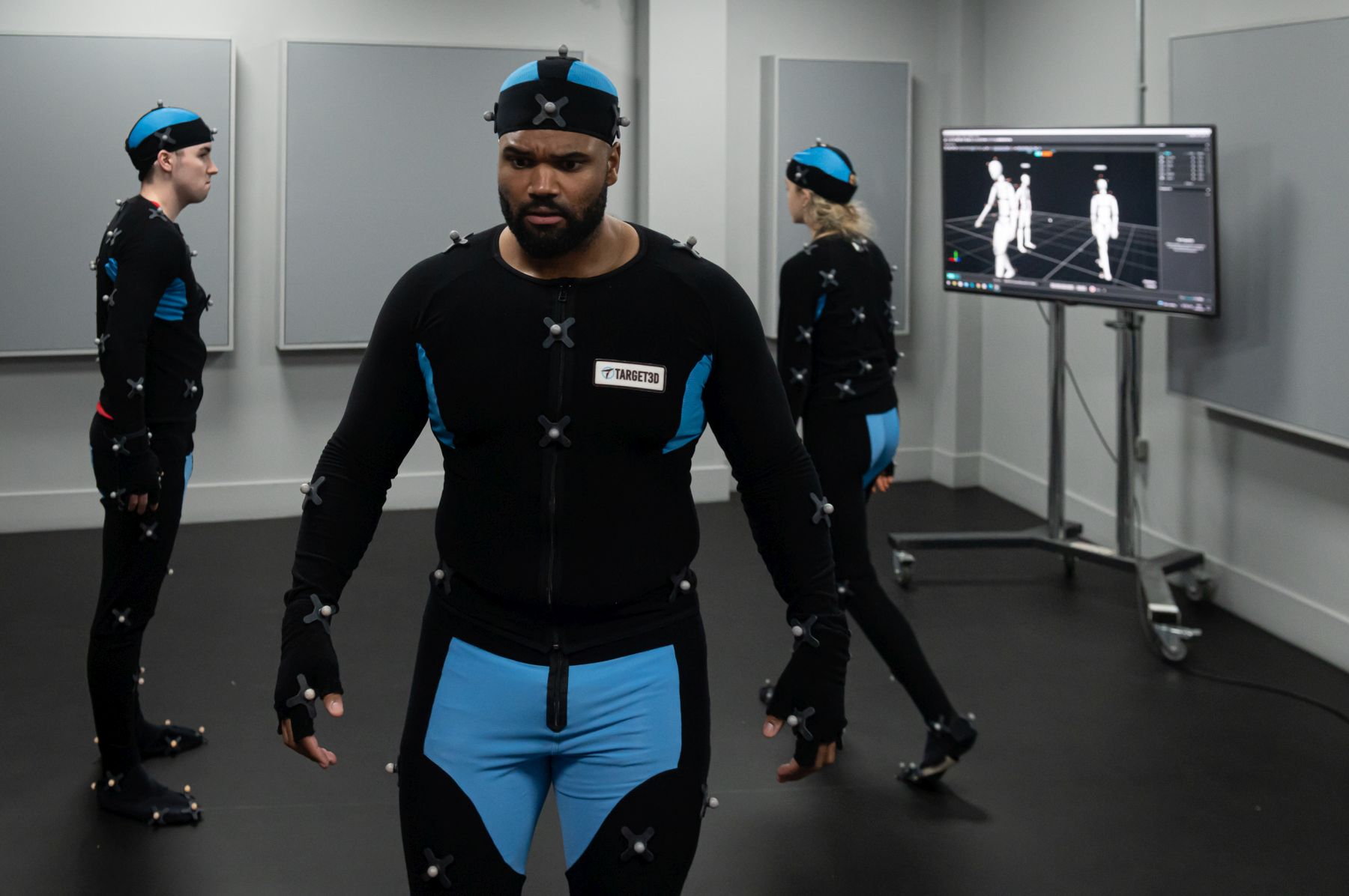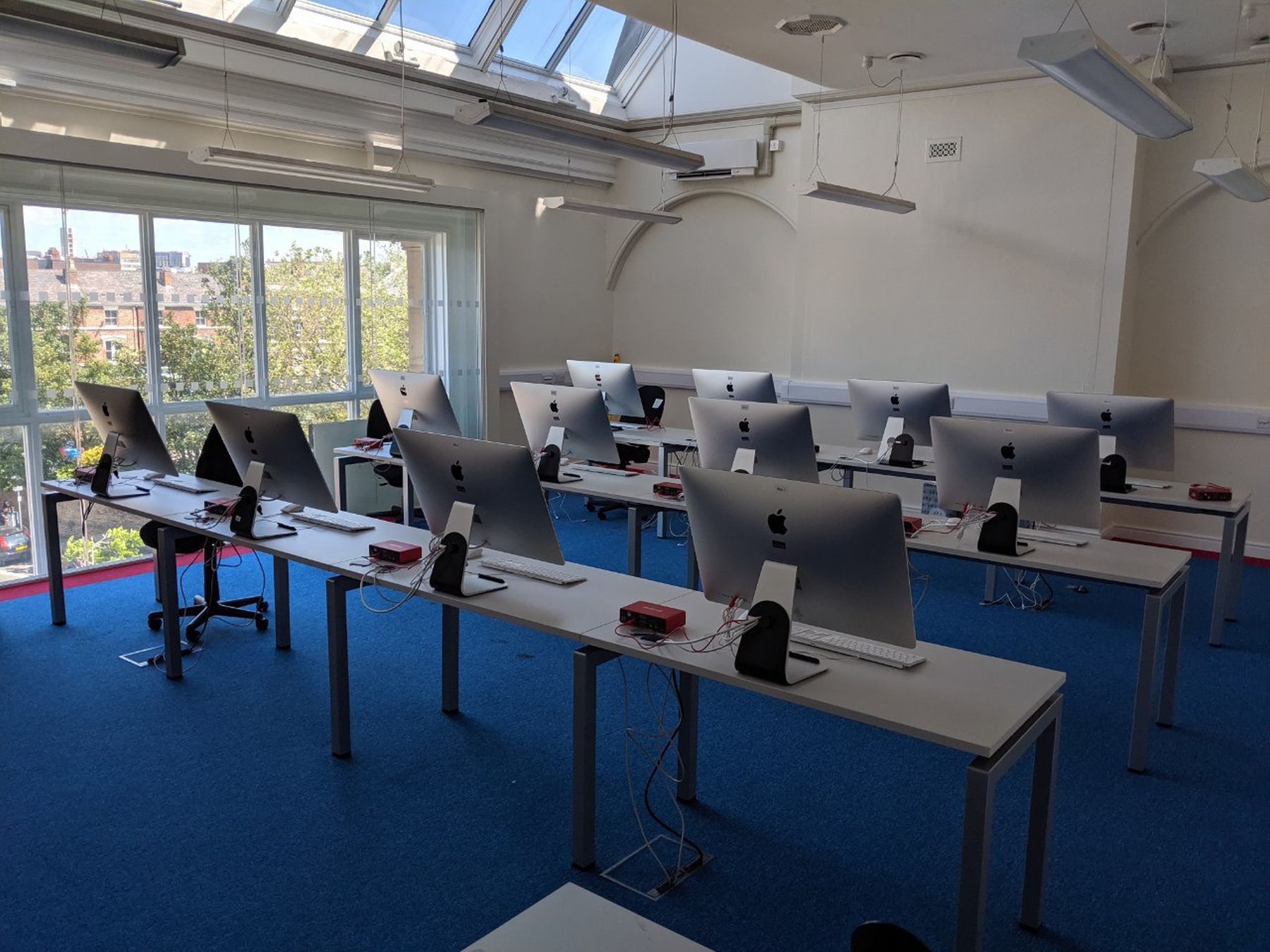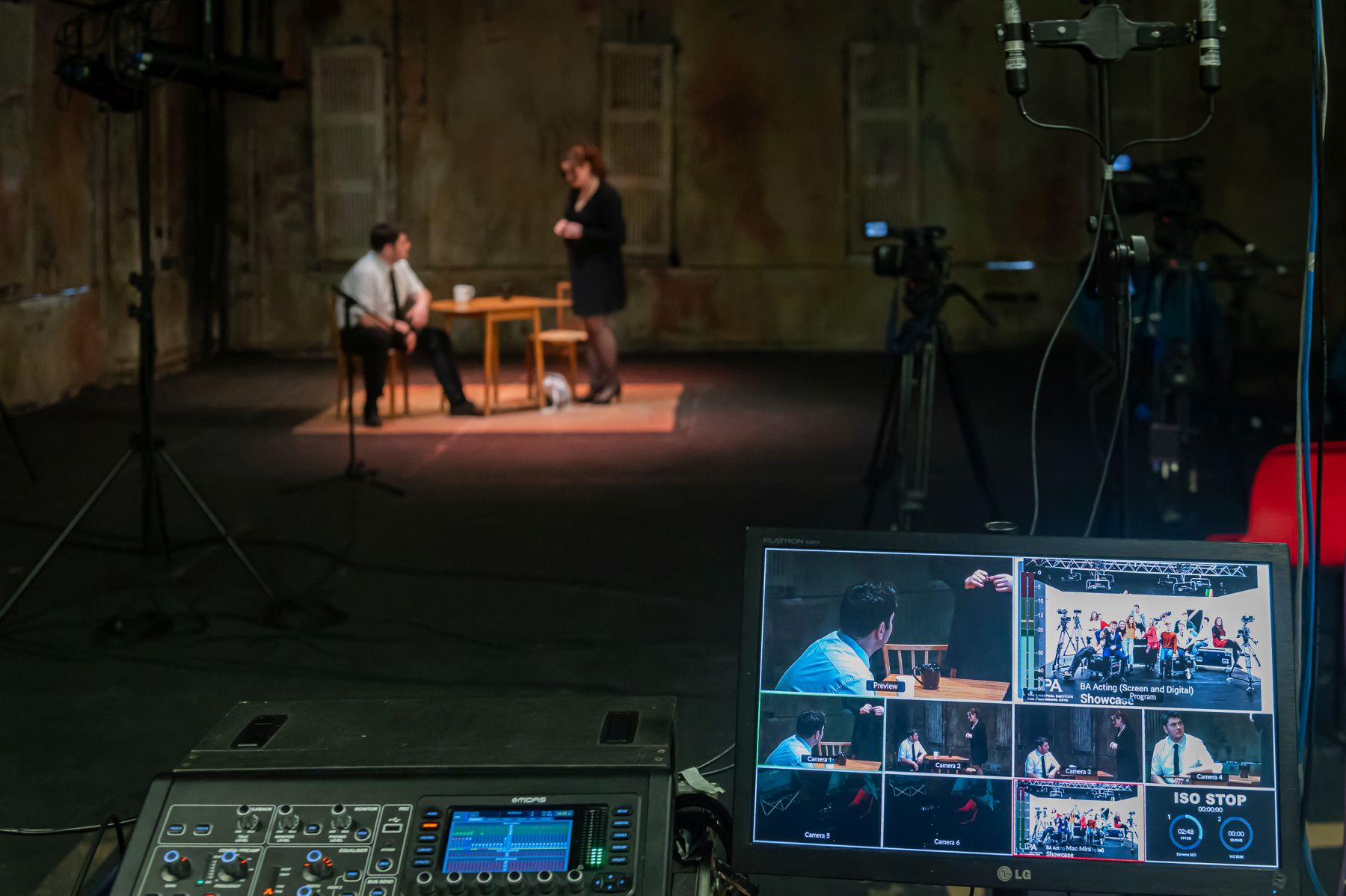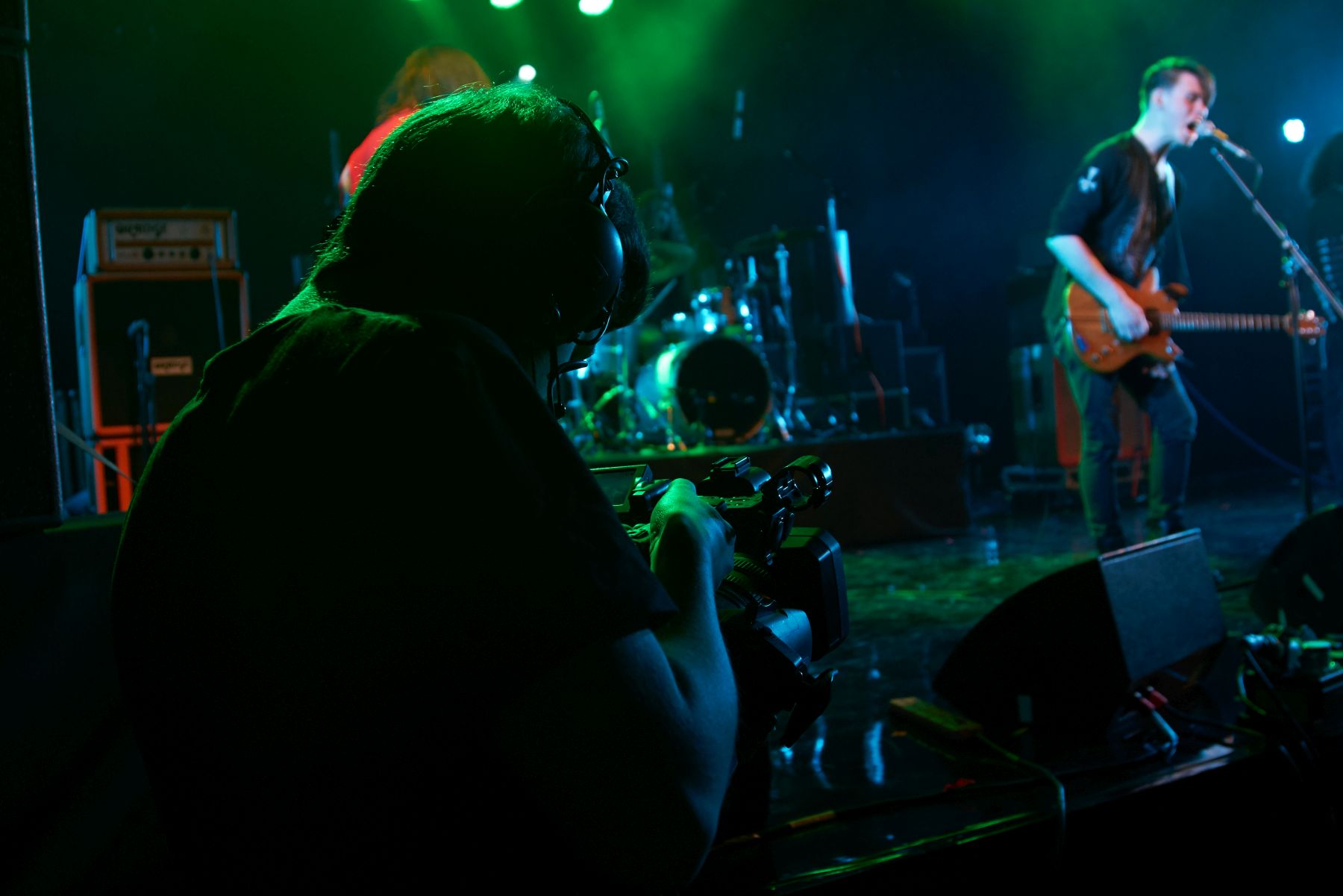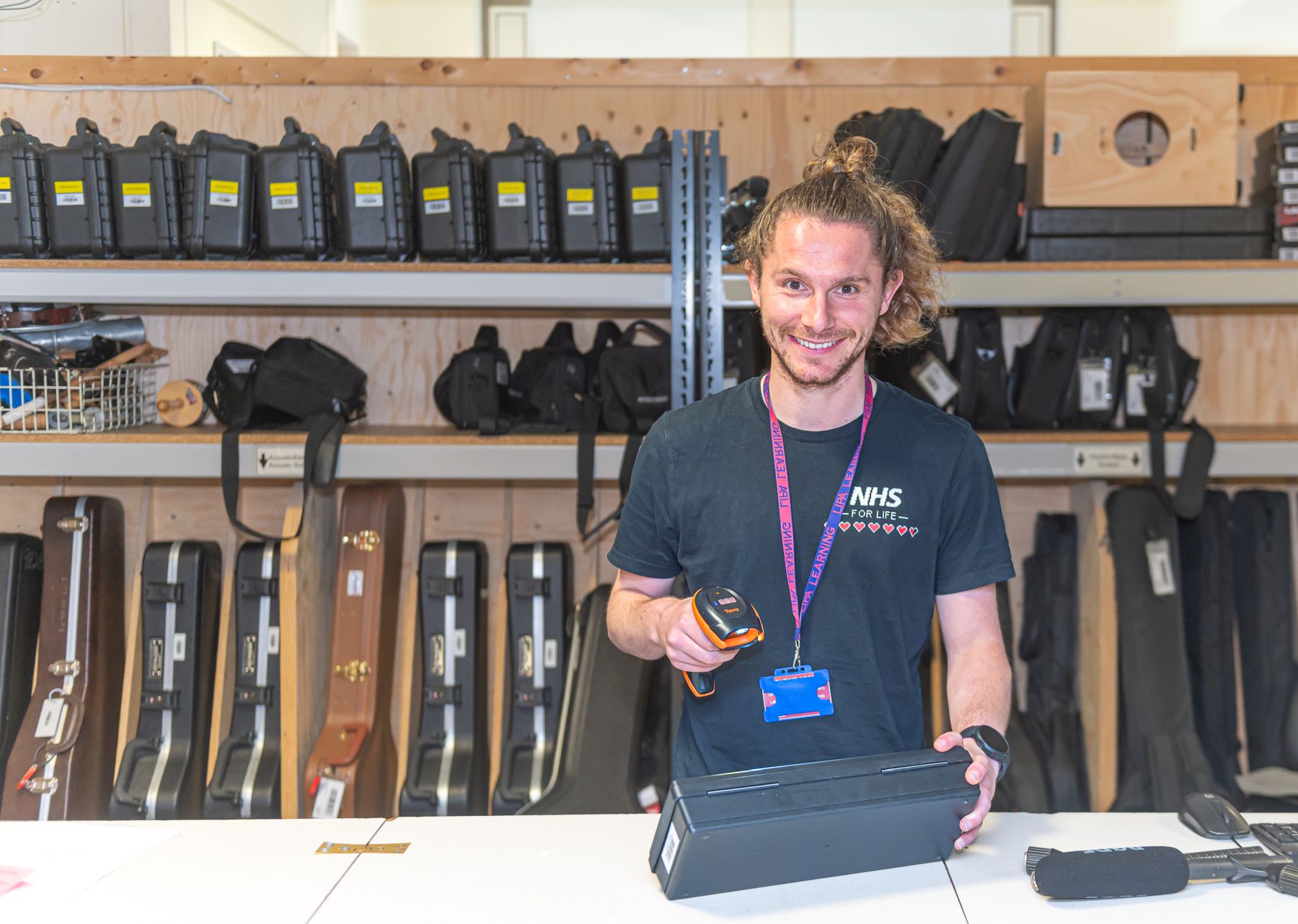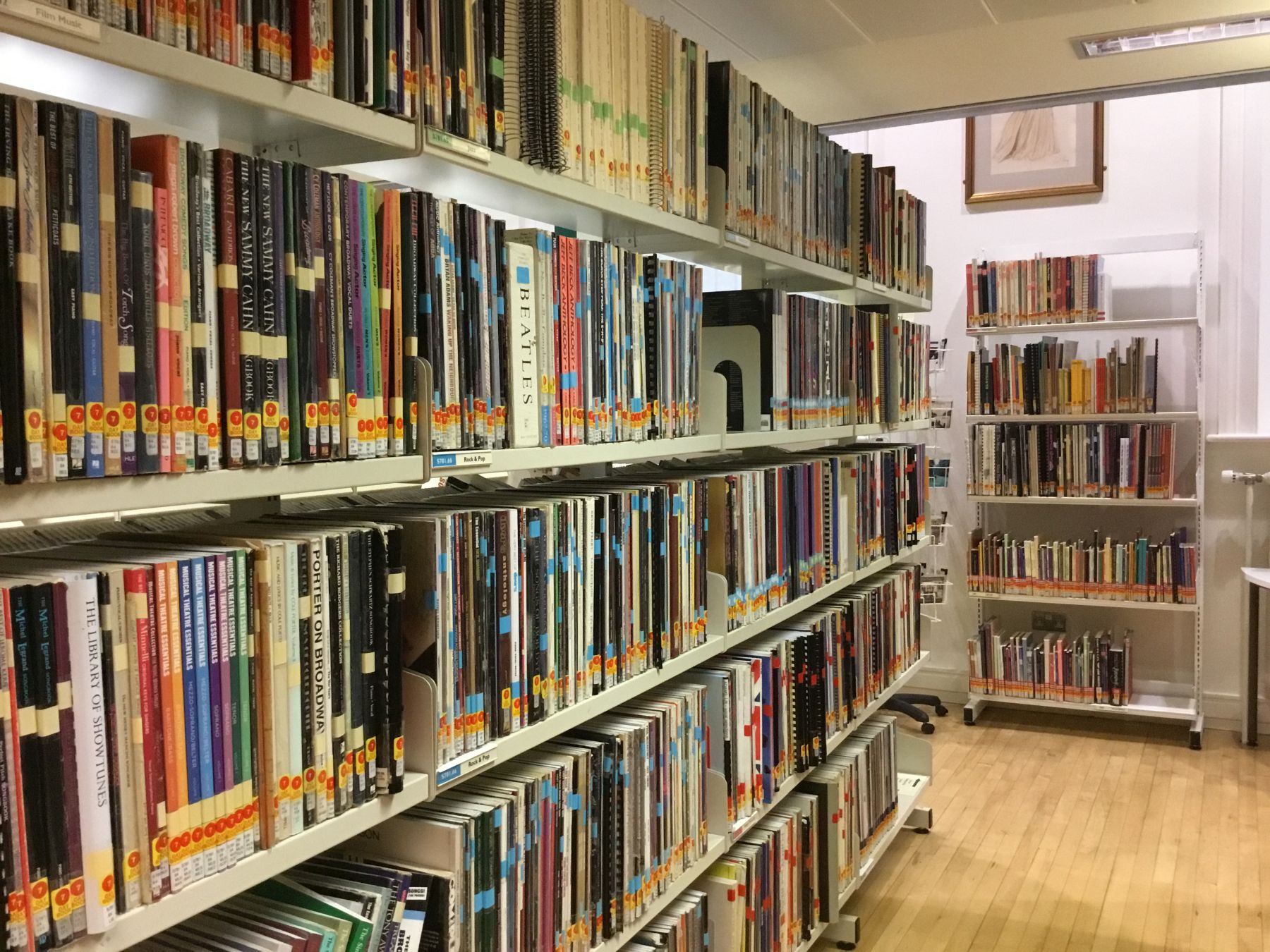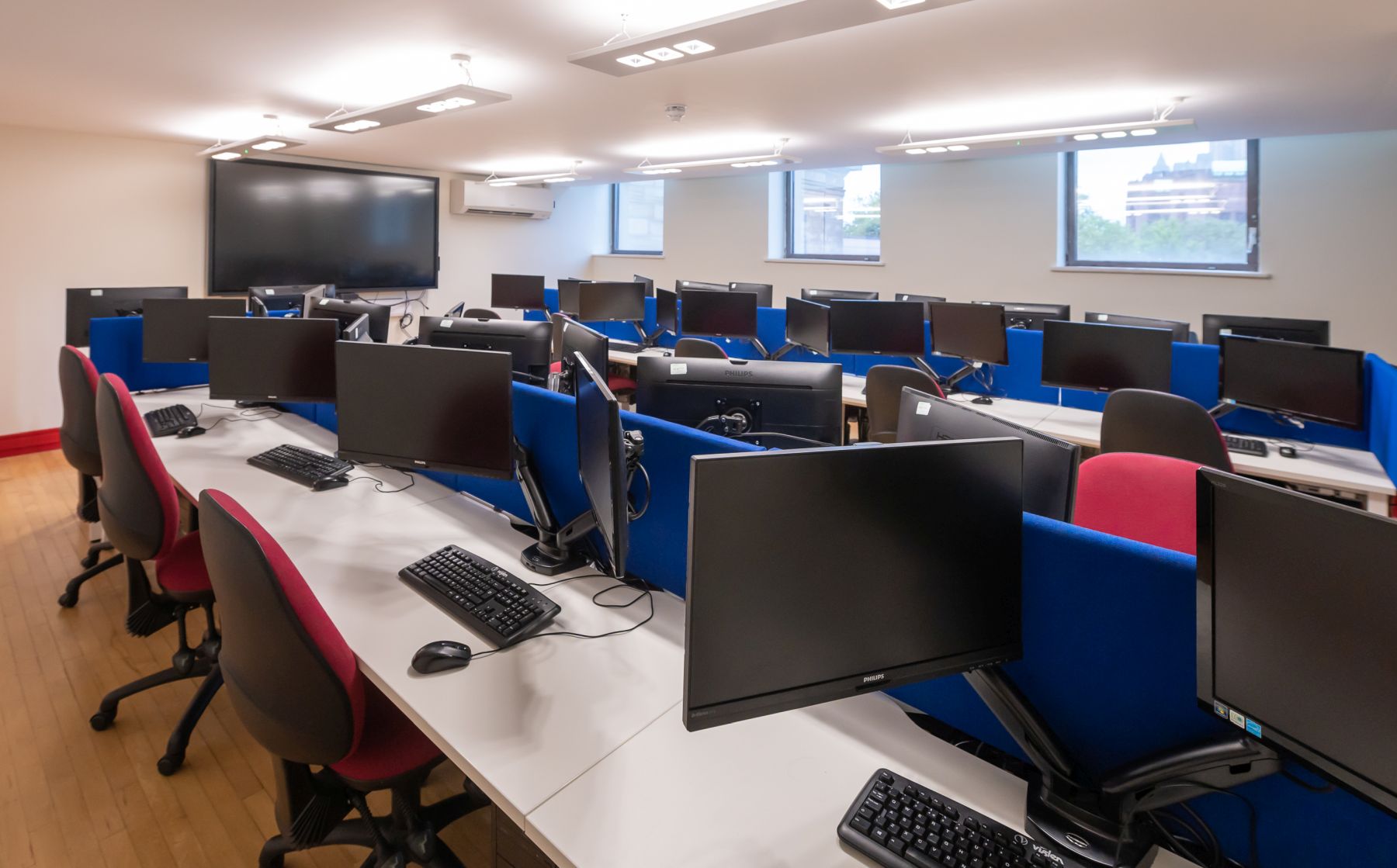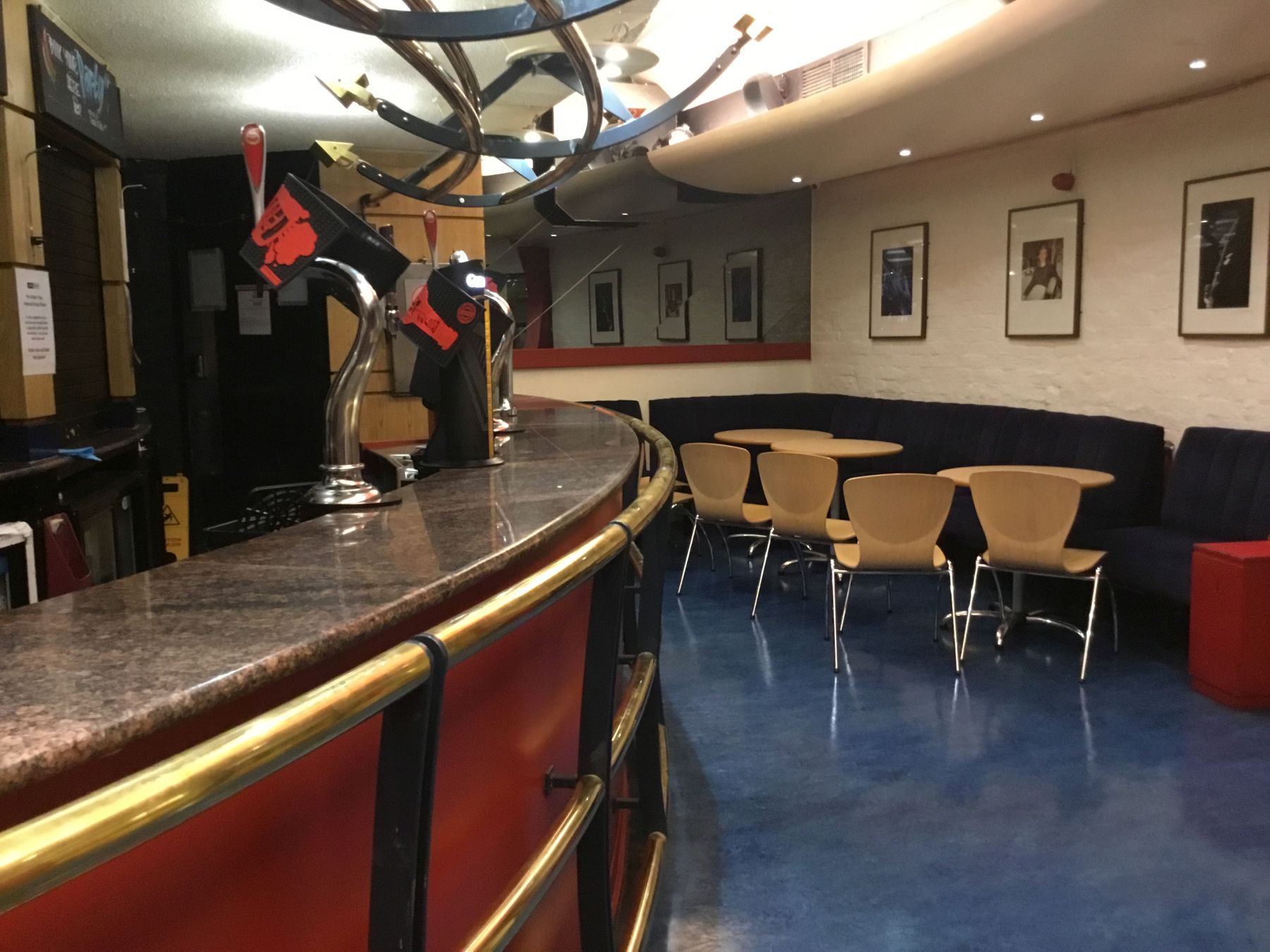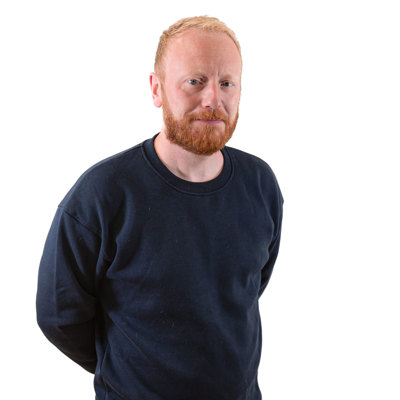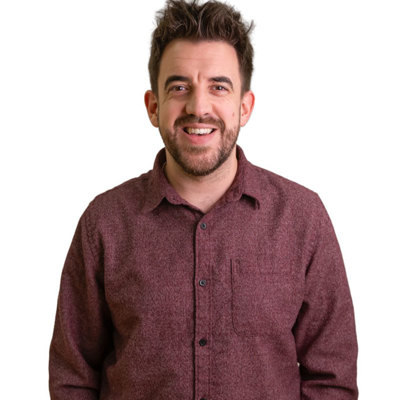Course
Overview
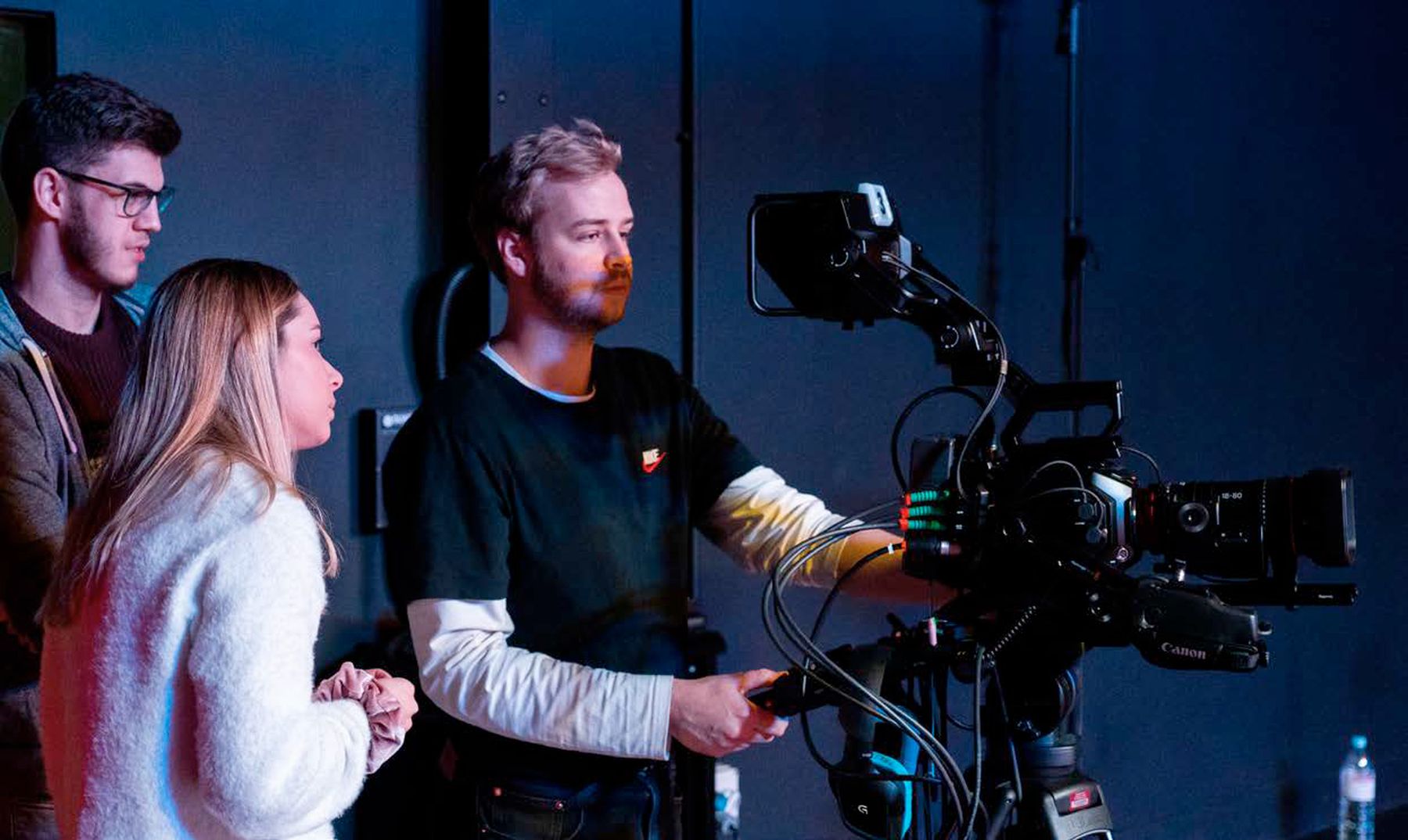
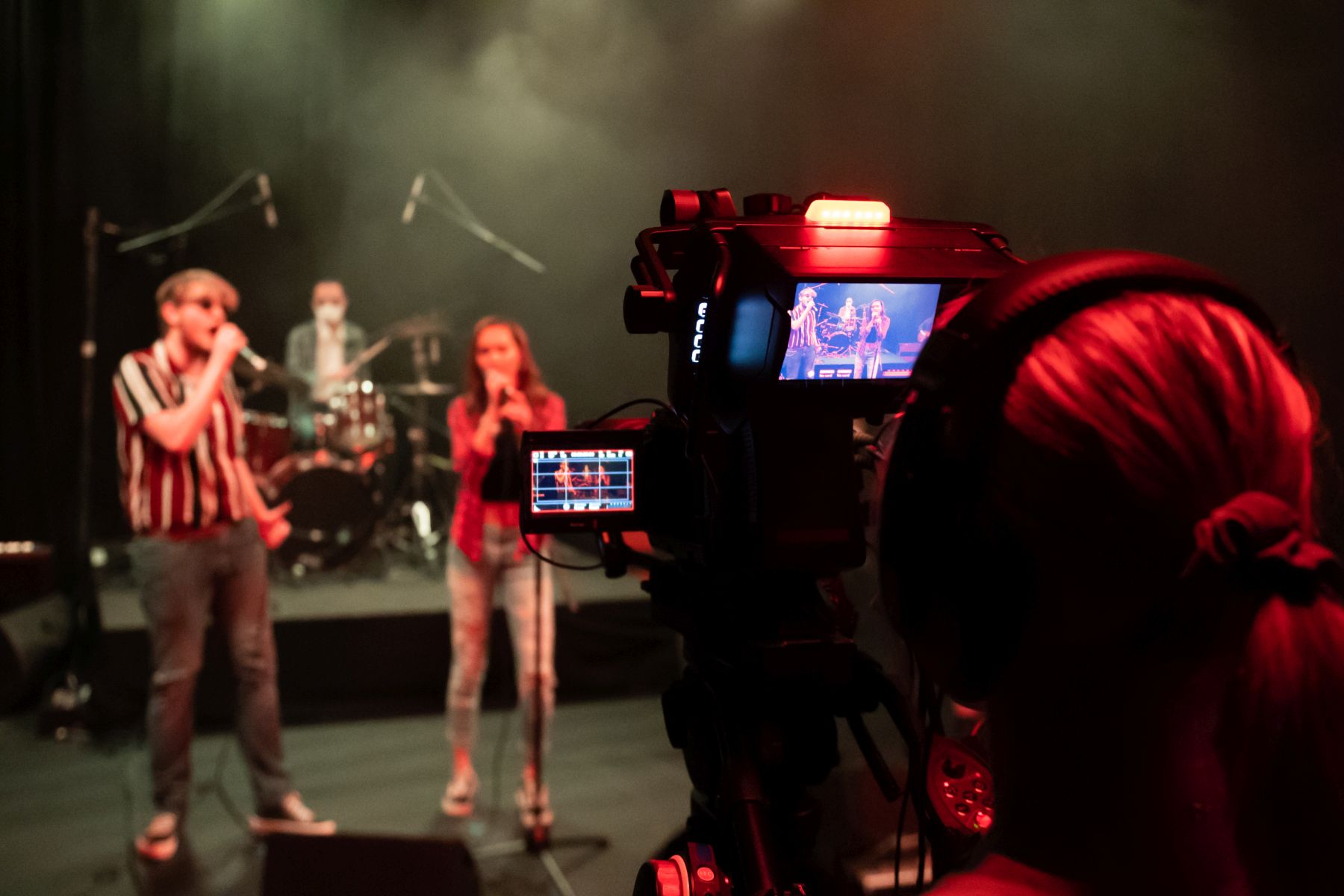
This highly practical course will enable you to become part of a new generation of filmmakers and storytellers: versatile practitioners capable of creating exceptional content for film, TV, theatre, concerts, digital platforms and emerging technologies.
In your first year you learn a range of key production, scriptwriting, filmmaking, lighting, audio and digital desktop skills. These provide you with a base for further exploration and more advanced study in your second year where we expand on these skills exploring studio production, location shooting, motion capture and virtual production and post production techniques. Armed with this knowledge and experience, in your third year you choose three modules that enable you to explore, develop and advance your skills in areas and subjects that reflect your passions and aspirations.
Mentor-guided project work throughout your studies enables you to explore ideas and implement the skills you develop to produce films from concept to completion. This empowers you to build a portfolio of original, innovative productions.
We’ve also partnered with Blackmagic Design to allow you to use the latest software and hardware and gain DaVinci Resolve certification while you study.

What You Will
Study
Introduction to Filmmaking
In this module you learn the principles of using a camera for the recording of drama and factual material. You are introduced to the basics of post production in terms of video and audio editing. You explore form and genre by producing a range of films, increasing in length and complexity before combining your experience and knowledge to produce a final film.
Introduction to Audio
In this module you learn the key skills of audio recording and post-production. Delivered on location and in the studio, it provides an insight into standard industry practices of audio production and introduces audio editing and refinement techniques in post production. The module provides you with the tools to produce high quality audio.
Lighting and Colour
In this module you gain an insight into the operation of lighting within the studio. Beginning with an introduction to the principal concepts of lighting and colour, you are also supported by an introduction to some of the diverse technologies and techniques used to apply light on location and in studio. You also learn how to control light remotely using DMX and other digital control from lighting desks and software systems.
Digital Production
In this module you are introduced to digital tools including 2D and 3D modelling, rigging and animation software to enable you to produce and render visual sequences without lens-based acquisition. Concepts including prefabs, modelling, texturing and lighting are explored. This module also serves as a foundation for future modules in Virtual Production, Motion Capture and VR.
Writing for Camera and Audio
In this module you learn the essential skills of scriptwriting along with key theories/ideas such as narrative, genre, authorship, and how screenplays are shaped by social and economic contexts. You explore a broad range of topics that include creation of character, character arcs, archetypes, the anti-hero, narrative theories and structures, writing dialogue and the TV writer’s room as you gain the skills and knowledge required to create scripts.
Production Management
In this module you learn a variety of production management techniques by breaking down a script for production. You develop script breakdowns, schedules, crew lists, risk assessments and the other documentation needed to enable the script to be produced and delivered.
Project 1
In this module you bring together your learning from the other modules and apply it to a live creative project. In simulated professional conditions you develop, propose, pitch and deliver a production project which you then reflect on and report on the process.
Multi Camera and Studio Creation
This module builds on the camera, sound and post production techniques learnt in your first year as you apply them in a studio environment. You explore production roles in the gallery and on the studio floor through production activities, including producing news and weather segments, magazine and chat shows, gameshows, dramas, sitcoms and capturing live music as you advance your studio production skills.
Location Filming and Sound
In this module you develop camera, sound and post production techniques for location filming. You develop and produce a short film as a crew, starting with a script breakdown and location scouting, before moving onto casting and budgeting. You shoot and edit the film as well as producing a behind the scenes reel with contributions from cast and crew to produce an EPK to help promote and contextualise the film.
Storytelling Traditions
In this module you explore a variety of storytelling forms and traditions. It enables the development of story ideas based on historic storytelling forms and tropes as you compile a portfolio of spoken word performances. The module sits as a point of contrast to the Storytelling and Screen Cultures module, focusing not on the emergence of contemporary storytelling techniques, but on forms and traditions.
Storytelling and Screen Cultures
In this module you develop your writing skills and your ability to create narratives for a variety of genres and media. Specific writing techniques are studied including how to write opening sequences and inciting incidents, which narrative forms and devices to use, and the role of transnational storytelling and the process of adaptation. This module looks at the techniques, conventions and strategies for writing police dramas, horror narratives, rom-coms and sit-coms before, finally, considering today’s era of binge viewing and the possible futures of our storytelling cultures.
Motion Capture and Virtual Production
In this module you explore contemporary storytelling techniques and technologies, motion capture and virtual production. You study the principles and possibilities and cover the operation and use of foundational motion capture and virtual reality (VR) equipment and packages as you produce a scene using motion capture and virtual production.
Post Production Techniques
In this module you advance your post production skills by correcting and improving video and audio using industry techniques and practices. These include colour correction, compositing and tracking for visuals and synching and mixing for audio. You then produce your own series of shots and sequences to be developed to demonstrate your chosen post production skills.
Project 2
In this module you bring together your learning from the other modules, and experience from Project 1, and apply it to a live creative project as you take your practical work to the next level. In fully professionally simulated conditions you develop, propose, pitch and deliver a production project which you then reflect on and report on the process.
Project 3 - core
In this module you bring together your learning from the other modules, and experience from Project 2, and apply it to a creative project as you take your practical work to the next level. In fully professionally simulated conditions you develop, propose, pitch and deliver a production project which you then reflect on and report on the process.
Directing - option
Along with the core final project, in your third year you choose three option modules that enable you to explore and deepen your interests and passions. In this module you advance your skills and abilities as a lead-creative in the production of film-based media. You explore the development and delivery of creative work from the role of a director. You design and develop scenes in collaboration with cast and crew and experiment with storytelling styles and techniques as you compile a portfolio of filmed material that demonstrates your abilities.
Cinematography - option
Along with the core final project, in your third year you choose three option modules that enable you to explore and deepen your interests and passions. In this module you advance and refine your cinematography skills by producing accomplished vignettes and scenes using a number of techniques and technologies. You explore traditional cinematography skills, blended with contemporary advances in the field to produce accomplished technical and artistic work.
Audio Post Production - option
Along with the core final project, in your third year you choose three option modules that enable you to explore and deepen your interests and passions. In this module you build on the key skills developed in previous modules, with an emphasis on post production sound for film. Topics include ADR, Foley, music in film, character design, masking, sound spheres, multichannel mixing, synchronisation, surround sound technology development, cross-platform multichannel audio and mastering standards. The module is designed to provide you with the tools to produce high quality, multichannel audio and industry standard deliverables in a number of formats.
Live Events and Broadcast Creation - option
Along with the core final project, in your third year you choose three option modules that enable you to explore and deepen your interests and passions. In this module you develop and deliver a live production through all production phases. Working on a series of live productions you experience a variety of roles and responsibilities to design and execute the creation and capture of live events and collaborate with other arts practitioners and disciplines across the institution to create a complex and externally facing broadcast portfolio.
Transmedia Storytelling - option
Along with the core final project, in your third year you choose three option modules that enable you to explore and deepen your interests and passions. In this module you study how narratives are no longer limited to one platform of storytelling. Instead, utilising convergent technologies, narratives are increasingly spread across a diverse range of mediums, each one offering only a fragment of a larger textual whole. You explore a range of different storytelling platforms: their histories, specificities, benefits, limitations and interconnections. You conceive, develop and produce a transmedia project/portfolio with a narrative spread across different media platforms.
Immersive Media - option
Along with the core final project, in your third year you choose three option modules that enable you to explore and deepen your interests and passions. In this module you study rapidly developing virtual, augmented and mixed reality technologies for mass communication and storytelling. You explore the impact of new technologies on storytelling and audiences and apply capture and presentation technologies for both audio and visual media, before proposing and creating a contemporary immersive story or experience.
Advanced Post-production - option
Along with the core final project, in your third year you choose three option modules that enable you to explore and deepen your interests and passions. In this module you advance your post production skills as you learn image visual effects (VFX) techniques. This includes colour grading, compositing, basic CGI and animation, match moving, integrating post VFX and live action. You compile a practical portfolio demonstrating VFX techniques.
How You Will
Study
-
Lectures
-
Seminars
-
Productions
-
Group Work
-
Masterclass
-
Independent study
How You Will Be
Assessed
You will be assessed through practical and written work. You have regular opportunities for project based learning where you work full-time and collaborate with other students, working in professional conditions to devise and deliver your own projects that grow in complexity as you progress. As well as your practical projects, you undertake a large-scale project which connects to your future career. At the end of each year, you create a portfolio to demonstrate your work.
Practical/written work ratio
70% practical work / 30% written assignments
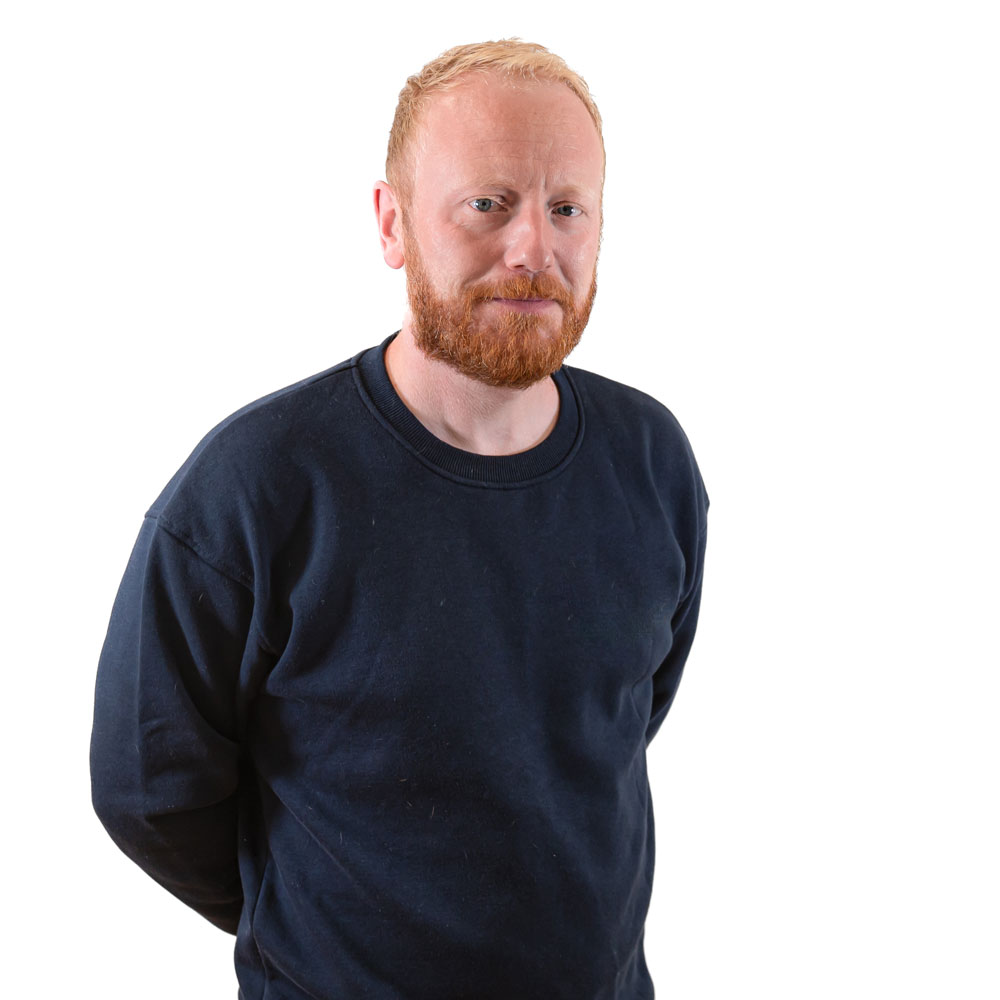
Dr Steve Davies
Head of Filmmaking and Creative Technologies
Steve is a filmmaker with nearly 20-years’ worth of industry experience, working on documentaries and network dramas. He’s creative director of his own production company, filmcafe, which has worked with clients such as the BBC, NHS and McDonalds including unique immersive imaging systems for both ultra-high resolution markets and mobile platforms. His PhD is in virtual reality video, concentrating on user-centred approaches to media creation and consumption by exploring interactions with media in virtual environments.
Before joining LIPA, he worked in universities across Wales, lecturing in television, filmmaking, cinematography and digital media.
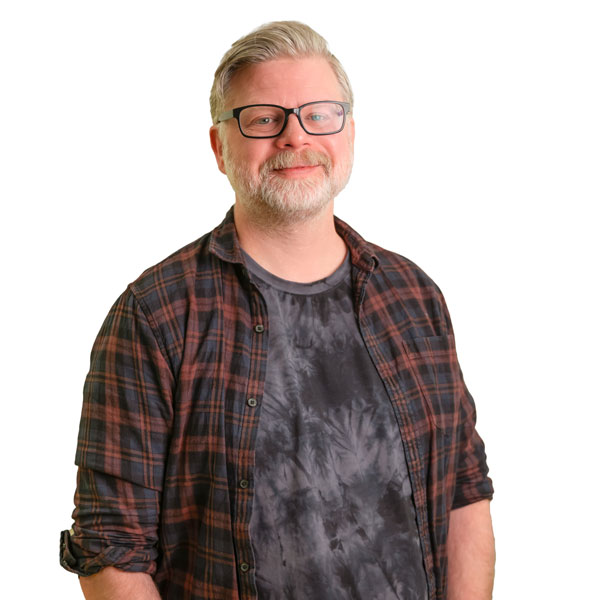
Dr Ryan Taylor
Lecturer
Ryan has a specialist knowledge of scriptwriting, transmedia storytelling, paratextuality, convergence culture, fandom, American television, media representations of gender, horror film theory and screenwriting. Having worked in academia for over a decade, he has lectured at various universities (including The University of Southampton and The University of Portsmouth) and taught modules/topics on: Crime Television; Gender, Sexuality & Cinema; Early Hollywood; British Cinema, Horror Film; Cultures of Consumption and Screenwriting. He is also a member of the advisory board of peer reviewers for three academic journals and has written numerous articles and book reviews, along with presenting papers at various internationally prestigious conferences.
While at LIPA, and specialising in scriptwriting practice and broader topics of media theory, Ryan delivers modules on the Filmmaking and Creative Technologies programme which include: Story, Script & Authorship (Level 4); Writing for Camera & Audio (Level 5); Devised Collaborative Live & Digital Performance (Level 5); Spoken Word (Level 6); Cross Platform Perspectives (Level 6); and Core Ideas/Theories (Levels 4, 5 & 6). Throughout these modules, Ryan has been a keen advocate for workshopping and peer feedback and is especially enthusiastic about active, student-centred learning. Indeed, he believes that lecturers are not the custodians but rather the facilitators of knowledge and it is their job to encourage rather than dictate critical discourse, intellectual enquiry and creative practice. As such, he strives to create an environment of interactive exchange in which learners can discuss their ideas and, collectively, we can stitch different perspectives together to form a larger holistic understanding. Within such an environment and collaborative knowledge community, we can all investigate, debate and learn together - it is only through communal exploration and discussion that we can analyse artistic practice and develop our own skills as storytellers.
Ryan’s lectures/research interrogate social inequalities concerning race, gender and sexuality and the ways in which unequal power relations are normalised/challenged by our storytelling cultures which have never been more important as we live in a polarised world of division, fragmentation, and misinformation. However, storytelling enables us to communicate our perspectives, speak truth to power and give voice to diverse cultural experiences. Storytelling is where we can imagine a better future and bring it to life.
This year, Ryan’s key publications include:
Chapters in Edited Collections:
- Dexter: Forensic Scientists, ‘Orientated’ Audiences & the Dark Defender of the Social Order. In R. Janicker (Ed.), The Scientist in Popular Culture. Maryland: Lexington Books.
Journal Articles:
- Bryan Fuller’s Hannibal: Cannibalizing the Canon. Published in the special issue of the Journal of Screenwriting entitled ‘The New Screenplay? Emerging Screenwriting Styles, Modes, and Languages’ [expected November 2022).

James Thorne
Teaching Fellow
James has over 15 years of experience working as a freelance audio engineer. During that time, he has worked professionally across a variety of different disciplines spanning audio post-production for film and TV, live sound & events and working in large format recording studios.
James has worked with Grammy, BAFTA and Brit award-winning clients and understands the technical rigour and inter-personal skills that are required to be successful operating at this level. He has over 10 years of experience teaching in higher education, having worked at a number of Universities and obtained a post-graduate teaching qualification in 2018.
This blend of real-world experience coupled with a deep understanding of higher education pedagogy means that James can support his students throughout their University journey and on to having successful careers of their own.
What Our
Graduates Do
This is a new course - we expect graduates will be able to work in many roles from film and television maker to writer or video projection artist.
There are also an increasing number of opportunities in virtual and augmented reality media. Theatre and musical theatre increasingly use film and projection, as do music events. Our graduates are also likely to be in demand, where pop-up events or retail business want to engage with immersive events and use of public spaces.
Related
News

Watch: award-winning film created by LIPA students and grads

Winter/Spring season of public performances

Gallery: Term one productions 2025/26

LIPA secures £2.5m Office for Students capital funding to deliver new performance and digital innovation hub

Autumn/Winter Season of public performances

LIPA achieves major milestone: new degree awarding powers

Gallery: Graduation 2025

Sir Paul McCartney honours leading arts figures at LIPA graduation

LIPA grads and students head to Edinburgh Fringe

James Nesbitt Q&A: six key takeaways

LIPA grads get creative for Christmas

Gallery: LIPA Christmas Concert

Filmmaking students learn from Big Bang Theory director

‘Films have a way of finding you out’ - Sir Sam Mendes at LIPA

LIPA shortlisted for environmental award

LIPA grads and students at Edinburgh Fringe

Gallery: Graduation 2024

Award-winning LIPA grad honoured by Sir Paul McCartney

WATCH: 2ube Xtra - LIPA’s student run music festival

LAMAs award ceremony celebrates next generation of film talent
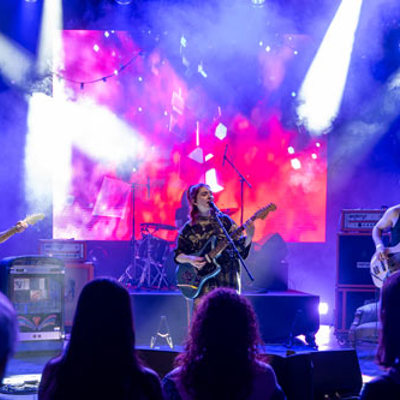
Twelve day music festival showcases LIPA students
Educational qualifications are important but limited in what they can tell us about you.
Your natural ability, your fit with what and how we teach, your growth and your potential are also key factors in our admission process. We can’t evaluate these solely on your educational achievements, so no matter which course you are applying for, we look for the following attributes on your application and at the interview stage.
Additional Costs
As part of this course, there are likely to be some additional costs that are not included within your tuition fees. We will send you more detailed information about books and equipment we’d like you to bring after you accept your offer. Many of the costs suggested below are optional.
Trips and training courses
As part of the various modules on the programme, some class trips may be offered to help support your learning. Some of these will form part of the curriculum but most will be important additions to your work. Some trips may be free or subsidised but you may be required to cover some costs yourself. Please allow up to £100 for these throughout the year.
Seeing shows
You should see live performances as often as you can. This is not compulsory, but it will help your development as a creative practitioner. Trips to the theatre and live events are not covered by your tuition fees, so you'll need to cover these costs yourself. We are occasionally offered a limited number of free or discounted tickets for shows in the city. We also encourage you to see LIPA shows. We offer discounted student tickets to make this as affordable as possible.
Portfolio
In addition to fundamentals such as printing costs, throughout your studies you will produce work to build your portfolio. Capture and storage of this work will require students to have appropriate storage media (e.g. SD Card, HDD, SSD). These are important investments in your future career.
Project work
While developing some of your projects, you may incur costs related to transport or accommodation. This will depend on the nature of your projects and the research you wish to carry out in order to produce them.
Cost of living
Wherever you choose to study, you'll have to budget for accommodation and other everyday living expenses, such as food and bills.
Accommodation costs are relatively low in Liverpool, particularly compared to the south east of England, and the city's shops and entertainment venues also have lots of student discounts.
We’d recommend completing a simple budget plan to predict your income and outgoings. This should include accommodation, bills, insurance, TV licence, food, laundry, clothes, books, travel and socialising. How much you'll want to spend on a lot of these is completely personal.
There is lots of advice available online about budgeting:
- UCAS budget calculator is a great tool to help you balance your in-comings and out-goings.
- SaveTheStudent provides useful information on student money resources, including loans, budgeting, and scholarship sources.
Most UK students will be able to take out a maintenance loan to assist with living costs and there are some grants available. We also offer some bursaries. To find out more, please see Student Finance and bursaries.
Because our courses are intensive and we have a busy season of student performances, options for part-time work during our teaching periods can be limited. However, many of our students gain flexible part-time work, in performance venues, shops, restaurants and bars. We also provide casual work opportunities for our students ranging from stewarding work on our productions to working with young people to help us widen access to our courses. The long summer break is when many of our students choose to work.
Additional Costs
As part of this course, there are likely to be some additional costs that are not included within your tuition fees. We will send you more detailed information about books and equipment we’d like you to bring after you accept your offer. Many of the costs suggested below are optional.
Trips and training courses
As part of the various modules on the programme, some class trips may be offered to help support your learning. Some of these will form part of the curriculum but most will be important additions to your work. Some trips may be free or subsidised but you may be required to cover some costs yourself. Please allow up to £100 for these throughout the year.
Seeing shows
You should see live performances as often as you can. This is not compulsory, but it will help your development as a creative practitioner. Trips to the theatre and live events are not covered by your tuition fees, so you'll need to cover these costs yourself. We are occasionally offered a limited number of free or discounted tickets for shows in the city. We also encourage you to see LIPA shows. We offer discounted student tickets to make this as affordable as possible.
Portfolio
In addition to fundamentals such as printing costs, throughout your studies you will produce work to build your portfolio. Capture and storage of this work will require students to have appropriate storage media (e.g. SD Card, HDD, SSD). These are important investments in your future career.
Project work
While developing some of your projects, you may incur costs related to transport or accommodation. This will depend on the nature of your projects and the research you wish to carry out in order to produce them.
Cost of living
Wherever you choose to study, you'll have to budget for accommodation and other everyday living expenses, such as food and bills.
Accommodation costs are relatively low in Liverpool, particularly compared to the south east of England, and the city's shops and entertainment venues also have lots of student discounts.
We’d recommend completing a simple budget plan to predict your income and outgoings. This should include accommodation, bills, insurance, TV licence, food, laundry, clothes, books, travel and socialising. How much you'll want to spend on a lot of these is completely personal.
There is lots of advice available online about budgeting:
- UCAS budget calculator is a great tool to help you balance your in-comings and out-goings.
- SaveTheStudent provides useful information on student money resources, including loans, budgeting, and scholarship sources.
Most UK students will be able to take out a maintenance loan to assist with living costs and there are some grants available. We also offer some bursaries. To find out more, please see Student Finance and bursaries.
Because our courses are intensive and we have a busy season of student performances, options for part-time work during our teaching periods can be limited. However, many of our students gain flexible part-time work, in performance venues, shops, restaurants and bars. We also provide casual work opportunities for our students ranging from stewarding work on our productions to working with young people to help us widen access to our courses. The long summer break is when many of our students choose to work.
View the programme specification on LIPA's course catalogue






